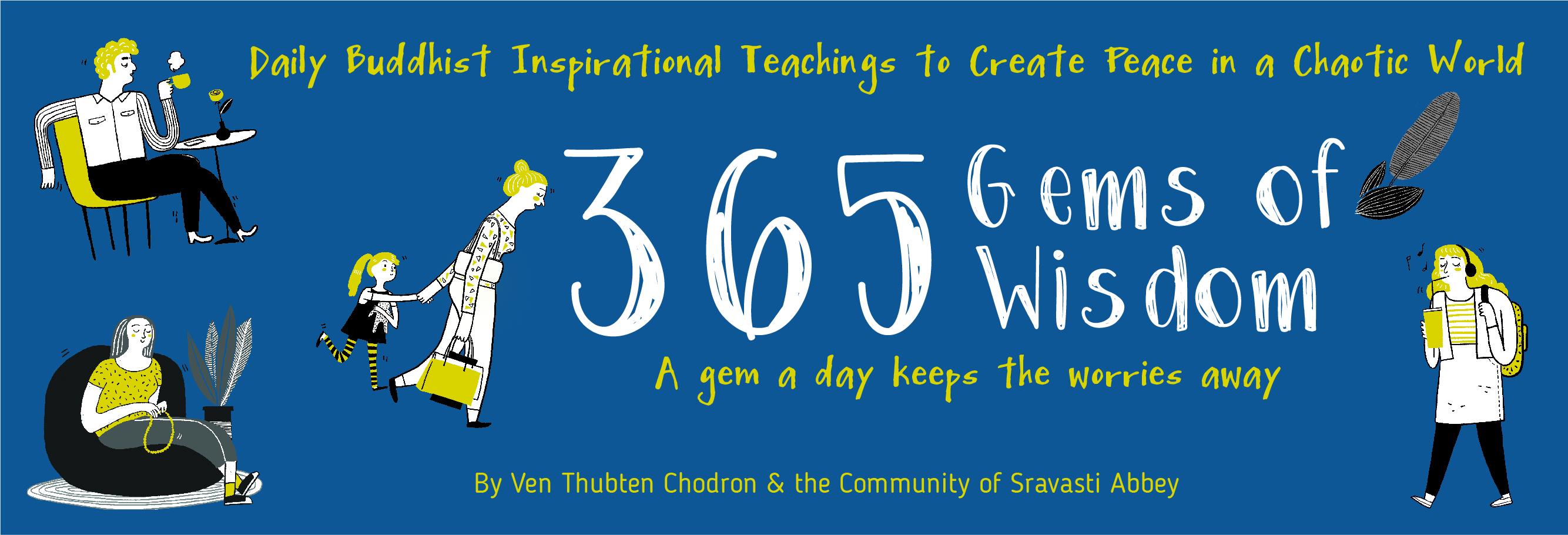July 30 : Dependent Arising and Compassion
Dependent arising usually comes up on the wisdom side of the path. But it also features prominently when we are cultivating bodhicitta, which involves recognising dukkha, or unsatisfactory conditions, for what it is, and reflecting on the kindness we have received from all sentient beings. First, we have to see our situation in samsara and want to be free. Then we can reflect on how it is also the situation of all other sentient beings and want them to be free of it too.
When examining our own “stuckness” in samsara, we contemplate the twelve links of dependent arising, how each link depends on the previous link, and how the origin of each rebirth can be traced back to ignorance. Meditating on dependent arising helps us see how our unsatisfactory conditions do not happen causelessly — they are not created by other people (believe it or not), or an external creator with a map of how the universe is supposed to function.
The Buddha largely gave the teaching on dependent arising to show that there is no external creator of our situation. Our situation is all rooted in the mind, the ignorant mind. From ignorance comes conditioned action, from which comes the consciousness upon which the karmic seed is placed. From there comes name and form when there is conception in the womb, and so on, ending in birth. In dependence on birth, there is aging and death, with many more cycles of the twelve-links created in between. By understanding dependent arising in this context, we realise that we and all other sentient beings are in the same boat and want all of us to be free. The real meaning of self-compassion is not sleeping late and having breakfast in bed but wanting to get ourselves out of samsara. Compassion for others is then extending that same wish to them.
“365 Gems of Wisdom” e-book is out now!

